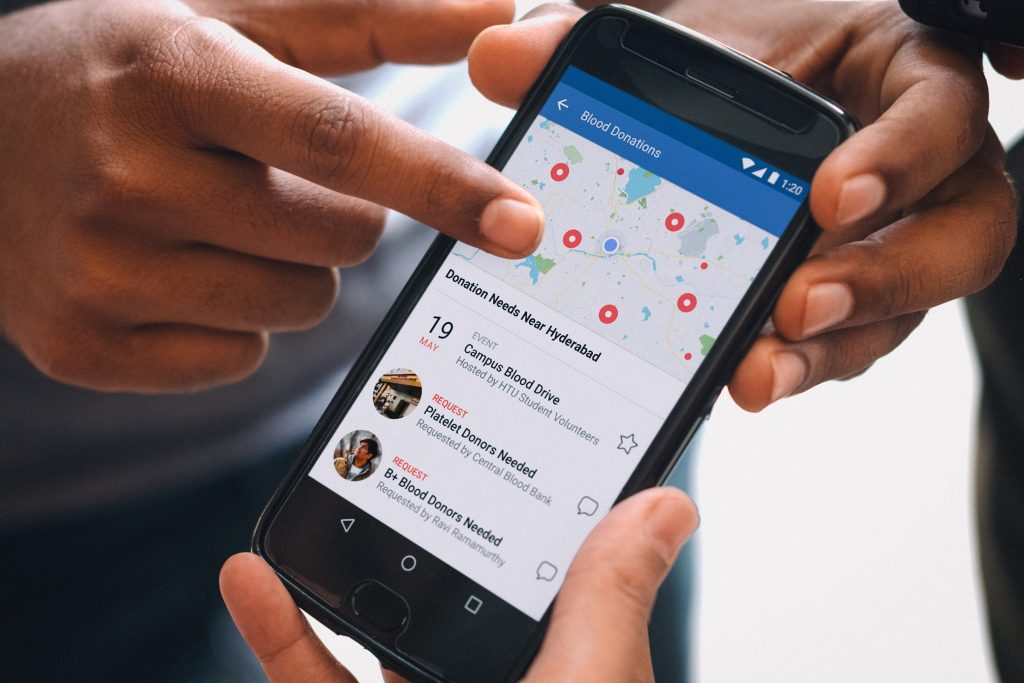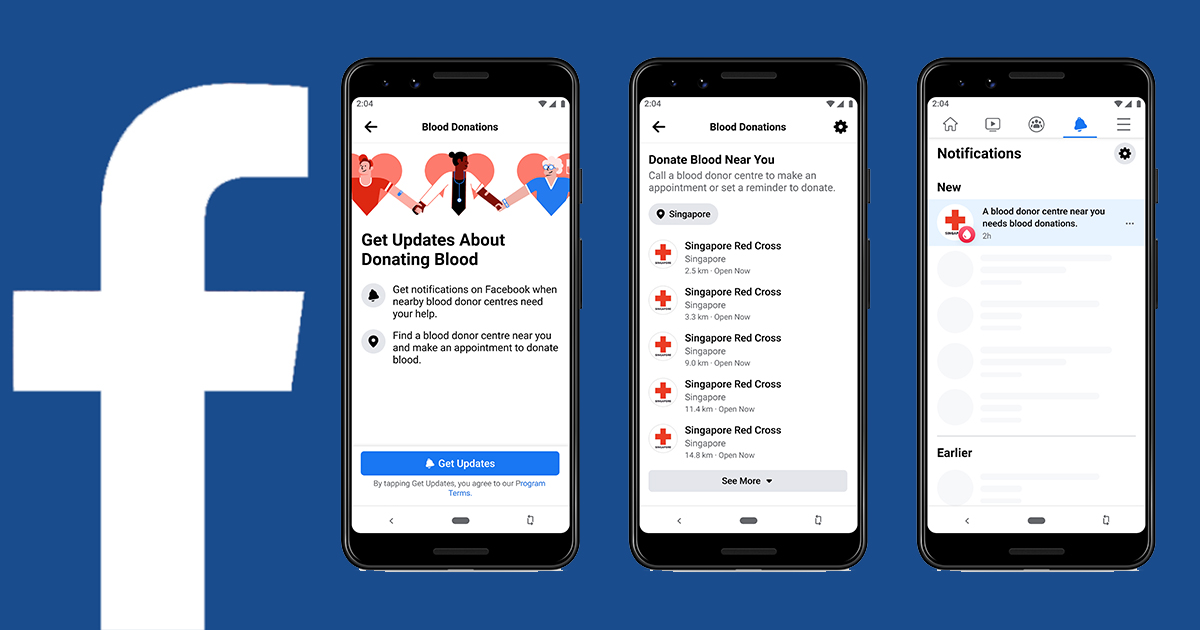Facebook Singapore announces the launch of Blood Donations, in honor of World Blood Donor Day. In partnership with the Singapore Red Cross (SRC), this new feature allows people to find opportunities to donate blood in four blood banks and community bloodmobile drives around the island.
Every hour of the day, 15 units of blood are used in Singapore. About 120,000 units of blood is required to meet the transfusion needs of patients every year, equivalent to around 350 – 400 units of blood a day.
Since the launch of the Blood Donations feature in 2017, over 100 million people have signed up globally to receive notifications from nearby blood banks about opportunities to donate, increasing blood donations around the world and helping maintain blood supplies during COVID-19.
How Blood Donations on Facebook work

The Blood Donations feature is a useful tool that connects people to their local blood banks, so they know when and where they can donate.
People can sign up to receive notifications about donating blood on Facebook by going to Blood Donations in the About section of their profile.
When donors are needed, notifications will be sent to those nearby who have signed up. People will be able to see requests and opportunities to donate here.
To better support community-based blood collection, the social media platform also introduced a way for blood banks to share their blood mobile drives via Facebook Events, increasing the visibility of these mobile drives to nearby, potential donors.
Facebook hopes that by raising awareness and connecting donors to the local blood banks, they can increase blood donations and contribute to a more sustainable blood supply to support patients in-need.









![[EYES HERE] Those attending the JJ Lin Sanctuary 2.0 World Tour 2019 are advised to follow these instructions [EYES HERE] Those attending the JJ Lin Sanctuary 2.0 World Tour 2019 are advised to follow these instructions - Alvinology](https://media.alvinology.com/uploads/2019/12/JJ-Lin-Sanctuary-World-Tour-2019-1024x538.jpg)

![[PROMO CODE INSIDE] Kuala Lumpur is now open for Singapore Travellers via AirAsia - book your flights for as low as SGD69! [PROMO CODE INSIDE] Kuala Lumpur is now open for Singapore Travellers via AirAsia - book your flights for as low as SGD69! - Alvinology](https://alvinology.com/wp-content/uploads/2021/11/AirAsia-Singapore-to-Malaysia-1024x538.jpg)
